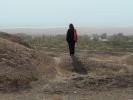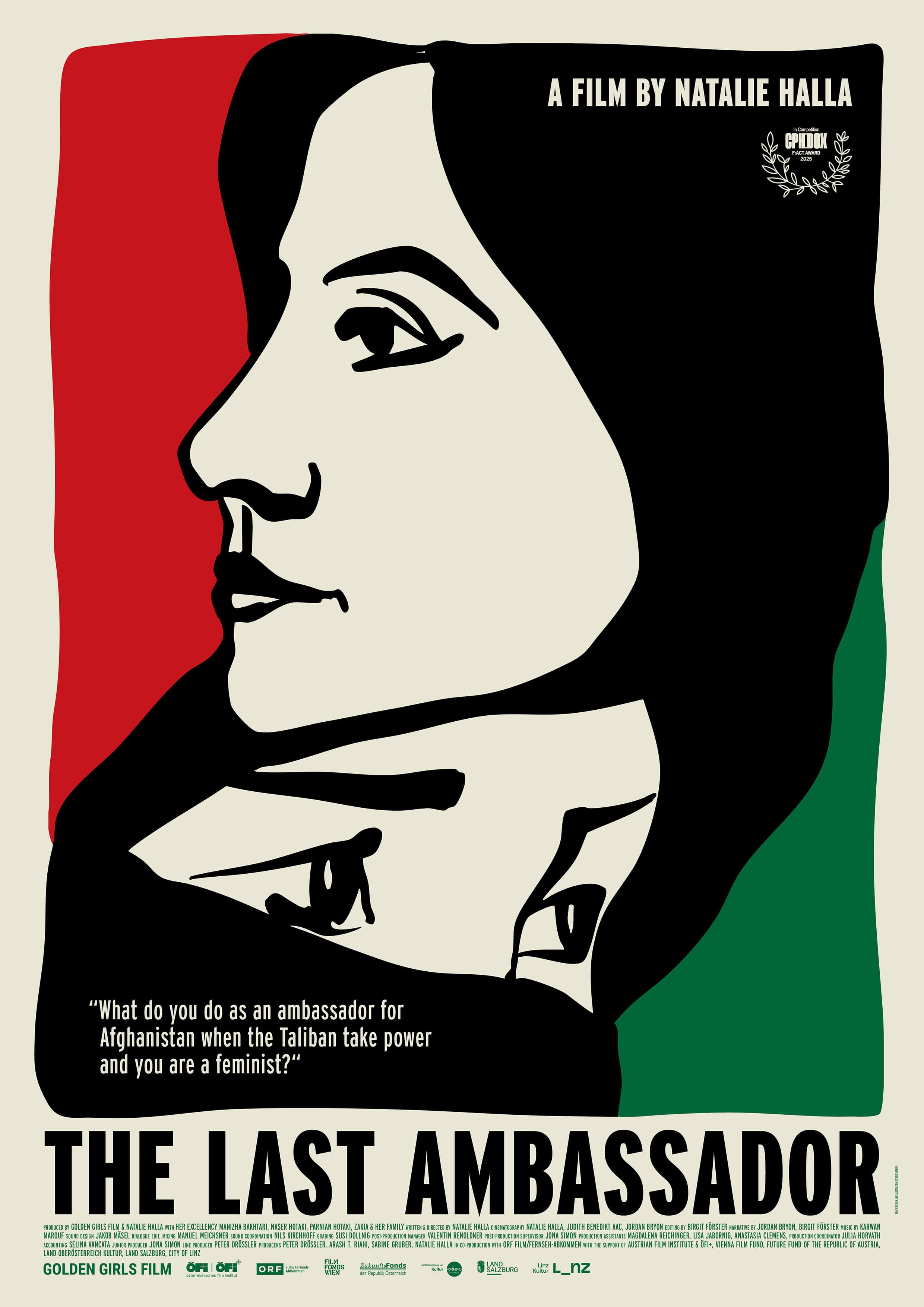Eye For Film >> Movies >> The Last Ambassador (2025) Film Review
The Last Ambassador
Reviewed by: Amber Wilkinson

Manizha Bakhtari may not be a household name but after watching Natalie Halla’s documentary you’re likely to think she ought to be. The diplomat was the Afghanistan ambassador to Vienna when the Taliban took over her homeland on August 15, 2021. “I didn’t believe Kabul would fall,” she says – an event which was just the beginning of her fight against the incoming government.
The development left Afghan embassies across the globe in a legal limbo and Bakhtari made a decision that she wasn’t going to step down quietly. Halla is with her almost from the start of her resistance fight, as Bakhtari is forced to downgrade the embassy premises and shed a lot of staff. The documentarian intercuts interviews with Bakhtari and her husband Naser Hotaki – who is a staunch supporter – with footage of her activism and archive from Afghanistan, showing the gradual creep of the Taliban’s fundamentalism.

As women’s rights are eroded in Afghanistan, including access to schooling, Bakhtari holds her ground, and begins a “daughters” programme, which aims to educate young women in secret. The most compelling aspect of The Last Ambassador, is footage from one of the youngsters on that programme, receiving mentoring from Bakhtari and it’s a shame that more details aren’t included, although this almost certainly stems from the risk it would present to the participants. The level of potential threat is clear, since we see the girl – whose identity is kept secret – being scolded by someone in the street for filming. Still, it would have been helpful to hear from more of the adult sponsors about what they are doing to help.
Bakhtari is a compelling subject for a documentary and Halla rounds out her biography by including footage of her arranged marriage to Hotaki as the pair describe how this meeting on their wedding day evolved into the love they share today. Halla also includes details of Bakhtari’s father – who was a famous poet in his homeland before being exiled. It’s a smart way of indicating the rich cultural history of Afghanistan, challenging the narrow preconceived ideas some audiences may have. But while the tight focus on Bakhtiari and her immediate family makes for an intimate film, additional contributors would again be welcome as a way of broadening it out.
Halla gives the film momentum by including the tick of days that have passed since the Taliban took power as the pressure mounts on her from Afghanistan but which also shows her determination growing in equal measure. Halla ensures the film is thorough in its representation of the situation but particularly towards the end, there’s a heavy reliance on intertitles to do this, when it would have been better to find a way to convey the same information via the mouths of interviewees. She nevertheless deserves plaudits for challenging cliches about Afghan society and for shining a light on Bakhtari’s unsung heroism that may not be capturing news headlines but is nonetheless continuing to change lives at a grassroots level and raise awareness on the diplomatic stage.
Reviewed on: 28 Mar 2025
















